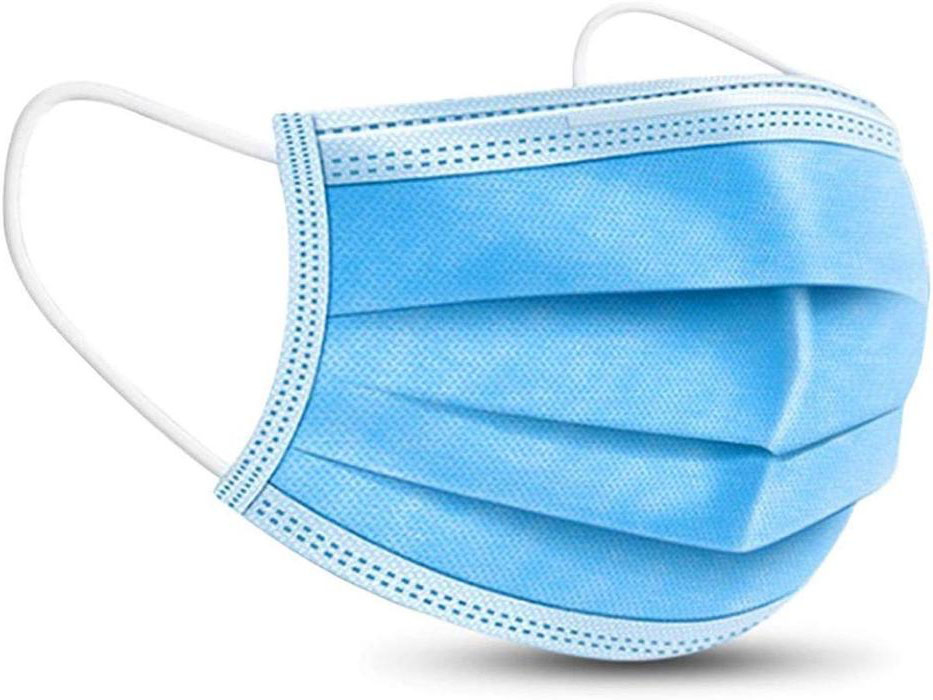
Paynesville – The resurgence of coronavirus pandemic in Liberia has given rise to a new wave of conspiracy theories about public health issues. Numerous viral videos are being shared as some social media posts also incite misinformation.
Report By: Varney Kelvin Sirleaf, Local Voices Liberia Fact Checker
Recently, the head of the Civil Society Council of Grand Cape Mount County made a post on Facebook, calling on people of the county to avoid wearing disposable mask. Mr. Alex Balo claimed that doctors have advised against the use of disposable masks because they cause cancer.
Mr. Balo relied on a Tik Tok video. In the video, a lady is seen questioning the safety of disposable masks. She claims that disposable masks were sprayed with ethylene oxide during production, warning that using them will cause cancer.
What is ethylene oxide and why is it Used?
According to the United States National Institutes of Health, at room temperature, ethylene oxide is a flammable colorless gas with a sweet odor. It is used primarily to produce other chemicals, including antifreeze. In smaller amounts, ethylene oxide is used as a pesticide and a sterilizing agent. The ability of ethylene oxide to damage DNA makes it an effective sterilizing agent but also accounts for its cancer-causing activity.
A fact checked report by USA Today found that about 50% of all sterile medical devices in the U.S. are sterilized with ethylene oxide. However, mask is not listed as a medical device and there is no evidence that it is sterilized with the chemical.
The types of medical devices that are sterilized with ethylene oxide are those used in general health care practices (for example, wound dressings) and specialized devices used to treat specific areas of the body. These items should be sterilized when used because any microbial contamination could result in disease transmission. Such items include surgical instruments, biopsy forceps, and implanted medical devices.
Claim about Ethylene Oxide used on masks is Incorrect
The US Food and Drugs Administration says that face masks sold to consumers (including cloth masks) are general not sterilized. This means that disposable masks are not sterilized as claimed by the lady in the viral video.
While protection does vary by type of mask, overall studies have estimated surgical and comparable cloth masks are 67% effective and that protection increases when masks are layered with different materials.
Another fact checked report by Reuter rates similar claim about disposable mask as false. Wearing a face mask does not put you at a higher risk of cancer. There is no current evidence linking the use of disposable face masks to cancer, and science shows that any risks associated with wearing masks are low overall, while the benefits are high.
John Hopkins Medicine adds that the blue disposable masks (popular in Liberia) are fluid resistant and provide some protection from larger respiratory droplets from coughs and sneezes. Primarily, they help prevent the wearer from spreading infectious droplets to others. These masks are used by health care workers whose safety depends on an adequate supply. These disposable masks cannot be washed and reused.

The US Centers for Disease Control and Prevention has always outlined and stressed the importance of wearing mask as a means of protecting yourself from COVID-19 | Source: CDC
Conclusion
There is no evidence that use of disposable mask causes cancer. In fact, wearing mask protects a person from contracting respiratory diseases like SARS-COV-2. The World Health Organization, the US Centers for Disease Control and Prevention, the John Hopkins Medicine, among others, have all agreed that the use of disposable mask is safe and do not give wearers cancer as claimed in the viral video.
We also did not find sufficient evidence to prove that disposable masks are part of the medical devices been sterilized with ethylene oxide.
Furthermore, we wish to clarify that there is a difference between a medical device and a medical equipment. Disposable masks are medical equipment and not a medical device as was incorrectly mentioned in the viral video. The term was used in the video to probably mislead the public about the use of disposable masks to prevent COVID-19.
The post by the Grand Cape Mount County civil society official which relied on the viral video is incorrect. Wearing mask doesn’t cause cancer because no mask is sterilized with ethylene oxide.
| Claim | Verdict |
|
Disposable masks are sterilized with ethylene oxide. Wearing them will give you cancer.
|
Incorrect. Disposable mask or other cloth masks are not sterilized. Wearing masks protects you from contracting respirator disease. |
Important: If you are experiencing these signs and symptoms go for testing. Wearing mask and vaccines offer good protection against the Delta variant and it is a good way to stay safe and protected.
You may contact us to fact check any claim or information relative to Liberia. Contact us on:
Factcheck.localvoicesliberia@gmail.com or WhatsApp: +231880986778
LVL Fact Checking Desk is part of the Liberia Media Initiative co-financed by the European Union. The funder had no say in the production of this report.
Local Voices Liberia is a network of dedicated Liberian journalists based in the 15 counties working to lift the development concerns and progress of rural communities.


Methodology

True
The claim is rigorous and the content is demonstrably true.

Half True
The statement is correct, although it needs clarification additional information or context.

Unproven
Evidence publicly available neither proves nor disproves the claim. More research is needed.

Misleading
The statement contains correct data, but ignores very important elements or is mixed with incorrect data giving a different, inaccurate or false impression.

False
The claim is inaccurate according to the best evidence publicly available at this time.

Retraction
Upon further investigation of the claim, a different conclusion was determined leading to the removal of the initial determination.

Toxic
A rude, disrespectful, or unreasonable comment that is somewhat likely to make you leave a discussion or give up on sharing your perspective. Based on algorithmic detection of issues around toxicity, obscenity, threats, insults, and hate speech;

































































































































































































































































































































































































































































































































































































